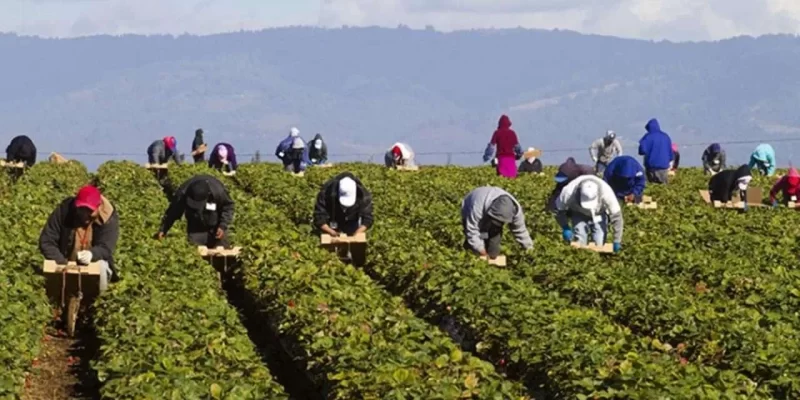Agriculture is the backbone of many economies, particularly in developing regions where the majority of the population relies on farming for their livelihood. The role of the Agriculture Extension Officer (AEO) is pivotal in bridging the gap between agricultural research and farmers. By disseminating knowledge, offering technical assistance, and promoting innovative practices, AEOs drive significant improvements in agricultural productivity and sustainability. This article explores seven proven strategies that agriculture extension-officers can employ to foster agricultural growth, offering detailed insights and practical advice for maximizing their impact.
Agriculture extension officer: Understanding Local Farming Systems
One of the fundamental strategies for agriculture extension-officers is to thoroughly understand the local farming systems. This involves recognizing the specific crops grown, the farming practices employed, and the unique challenges faced by farmers in the area. By gaining this knowledge, AEOs can tailor their advice and interventions to be highly relevant and effective.
A comprehensive understanding of local farming systems enables AEOs to identify the most appropriate technologies and practices that will benefit the farmers. It also helps in building trust and rapport with the farming community, as farmers are more likely to listen to advice that is directly applicable to their context.
Agriculture extension officer: Building Strong Farmer Relationships
Agriculture extension officer need to build strong, trust-based relationships with farmers. Effective communication and regular interaction are key to achieving this. By being approachable and empathetic, AEOs can create an environment where farmers feel comfortable sharing their concerns and seeking guidance.
Strong relationships also facilitate better information exchange. Farmers are more likely to adopt new practices and technologies if they trust the source of the information. Regular farm visits, participatory meetings, and follow-up sessions are essential components of building and maintaining these relationships.
Promoting Sustainable Farming Practices
Sustainability is a critical aspect of modern agriculture, and agriculture extension officer play a crucial role in promoting sustainable farming practices. This includes advocating for crop diversification, organic farming, integrated pest management, and conservation agriculture.
AEOs should educate farmers on the long-term benefits of sustainable practices, such as improved soil health, reduced input costs, and increased resilience to climate change. Demonstration plots, field days, and workshops can be effective tools for showcasing the advantages of these practices and encouraging their adoption.
Leveraging Technology and Innovation
The rapid advancement of technology offers numerous opportunities for agricultural improvement. Agriculture extension officer must stay abreast of the latest technological developments and facilitate their adoption among farmers. This includes precision agriculture tools, mobile apps for farm management, remote sensing, and GPS-based technologies.
By leveraging technology, AEOs can help farmers optimize their operations, reduce waste, and increase yields. Training sessions on using these technologies, along with ongoing technical support, are crucial for ensuring successful implementation.
Facilitating Access to Resources
A significant challenge for many farmers is accessing the necessary resources, such as quality seeds, fertilizers, credit, and market information. Agriculture extension-officers can assist by connecting farmers with suppliers, financial institutions, and markets.
AEOs can organize input distribution programs, link farmers with microfinance institutions, and provide market intelligence. By facilitating access to resources, they help farmers improve their productivity and profitability.
Enhancing Farmer Education and Training
Continuous education and training are vital for the professional development of farmers. Agriculture extension officer should provide regular training sessions on a wide range of topics, including modern farming techniques, post-harvest handling, and value addition.
Workshops, seminars, and on-field training can enhance farmers’ knowledge and skills, enabling them to adopt best practices and improve their productivity. It’s also beneficial to incorporate local farmer leaders in these training programs, as their influence can encourage wider adoption of new techniques.
Encouraging Farmer Cooperatives and Group Activities
Farmer cooperatives and group activities can significantly enhance the effectiveness of agricultural interventions. Agriculture extension officer should encourage the formation of farmer groups and cooperatives to facilitate collective action.
Through cooperatives, farmers can pool resources, share knowledge, and gain better bargaining power. AEOs can assist in organizing these groups, providing governance training, and supporting their operations. Group activities also foster a sense of community and mutual support among farmers.
Utilizing Data-Driven Decision Making
Data-driven decision making is becoming increasingly important in agriculture. Agriculture extension officer should collect and analyze data on crop performance, soil health, weather patterns, and market trends to inform their recommendations.
By utilizing data, AEOs can provide farmers with precise advice that is backed by evidence. This not only improves the effectiveness of their interventions but also builds credibility with the farming community. Investing in data collection tools and training AEOs on data analysis can significantly enhance their impact.
Addressing Gender and Social Inclusion
In many rural communities, women play a crucial role in agriculture, yet they often have less access to resources and training. Agriculture extension-officers must address gender and social inclusion by ensuring that their programs are accessible to all, regardless of gender, age, or social status.
This involves creating targeted interventions for women farmers, involving them in decision-making processes, and addressing any cultural barriers that may hinder their participation. Inclusive approaches lead to more equitable and sustainable agricultural development.
Advocating for Policy Support
Agriculture extension officer should also engage in advocacy to influence policies that support agricultural development. This includes lobbying for better infrastructure, favorable trade policies, and increased investment in agricultural research and extension services.
By working with policymakers, AEOs can help create an enabling environment for agricultural growth. They should gather evidence from the field to support their advocacy efforts and collaborate with other stakeholders, such as NGOs and farmer organizations, to amplify their voice.
Conclusion
The role of the agriculture extension officer is multifaceted and critical to the advancement of agriculture. By understanding local farming systems, building strong farmer relationships, promoting sustainable practices, leveraging technology, facilitating access to resources, enhancing education, encouraging cooperatives, utilizing data, addressing social inclusion, and advocating for policy support, AEOs can significantly contribute to agricultural growth. The strategies outlined in this article provide a comprehensive guide for AEOs to maximize their impact and drive positive change in the farming communities they serve.
FAQs
Q1. What is the primary role of an agriculture extension officer?
The primary role of an agriculture extension officer is to act as a bridge between agricultural research and farmers, providing technical assistance, disseminating knowledge, and promoting innovative practices to improve agricultural productivity and sustainability.
Q2. How can agriculture extension-officers build trust with farmers?
Agriculture extension-officers can build trust with farmers by understanding local farming systems, being approachable and empathetic, maintaining regular communication, and demonstrating a genuine commitment to addressing farmers’ concerns and needs.
Q3. Why is promoting sustainable farming practices important for agriculture extension-officers?
Promoting sustainable farming practices is important because it ensures long-term agricultural productivity, improves soil health, reduces input costs, and increases resilience to climate change, ultimately benefiting both farmers and the environment.
Q4. How can agriculture extension-officers leverage technology to benefit farmers?
Agriculture extension-officers can leverage technology by introducing precision agriculture tools, mobile apps for farm management, remote sensing, and GPS-based technologies. They should provide training and ongoing technical support to help farmers adopt and effectively use these technologies.
Q5. What are the benefits of farmer cooperatives and group activities?
Farmer cooperatives and group activities allow farmers to pool resources, share knowledge, and gain better bargaining power. They facilitate collective action, enhance access to resources and markets, and foster a sense of community and mutual support among farmers.
Also read: International Tech Park Pune Kharadi: 10 best Ways it’s Revolutionizing Tech Innovation












